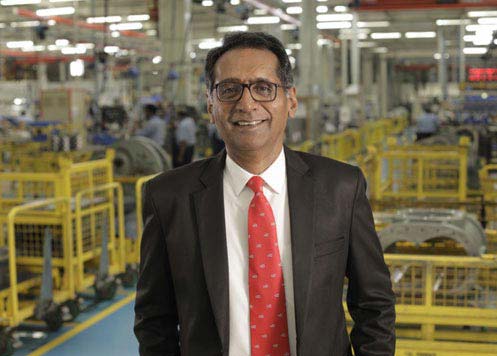BRINGING ALIGNMENT TO A COMPANY’S GOAL & AN INDIVIDUAL’S GOAL

Dr Jairam Varadaraj, Managing Director, ELGi Equipments, one of the global leaders in providing sustainable compressed air solutions. In this confab with Juili Eklahare, Dr Varadaraj throws light on what made the company win the Deming prize, how it aligns individual goals with the company's goals and explains its goal of becoming the world’s second-largest air compressor manufacturer & not the first. Excerpts…
You say that the ELGi Business System (EBS) is a means to achieve ELGi’s goal of becoming the world’s second-largest air compressor manufacturer by 2027. Why not the first?
Being the first largest is not going to happen in the time frame that we have planned; the time till 2027 is too short to have that kind of an aspiration – the aspiration has to be large but it also has to be realistic. We have not looked at number one yet; we’ll first get to the targeted milestone and then calibrate ourselves because the strategy to get to number two is going to be very different from the strategy required to get to number one. It’s like climbing Everest – one goes to the base camp and then starts working his/her way up.
What do you attribute the success to when ELGi won the Deming prize? What makes your company different?
The Deming prize is the recognition of the way we conduct our business – how customer-centric we are, not just in our statements but in the actual processes that we follow in the company. It’s a very detailed process of audit that is done in two phases by a team of four people in each phase, where they come & go into minute details of how our processes are working, how they are aligned to customers & employees, etc. The fact that we have been recognised as a Deming company means that our processes in every function are extremely customer-centric & employee-friendly. But I can’t make the statement that another company that is not Deming is not focused on customers. However, the fact that we are recognised as Deming means that we have that centricity in our processes.
How do you align individual goals with the company's goals? Can you give examples?
Let’s say, the company’s goal is to increase the market share for a particular product in India. So, we take that overall productivity goal and consider that if we have to increase the market share for this product in India, then in which geographical region is our market share low compared to other geographies. Once we identify that geographical region, we will go further into that region and consider which city/district in that geographical region is there where the opportunity is the highest and our share is the lowest. Once we have identified the district, the sales manager & the sales engineer responsible for that district will have a target that reflects our aspiration of increasing our share. That’s an example of how we bring alignment to a company’s goal & an individual’s goal. There are tonnes of other examples, not just in sales, but in quality, service, production, etc.
You are expanding your company's focus globally, which was primarily Italy and France to a certain extent. Can you tell us about your company’s global expansion?
Our strategy is to define clearly where we want to play in a very focused strategic manner. So, when we did that exercise about five to six years ago, we identified Australia, Indonesia, Thailand, India, Europe and North America as the strategic markets that we will focus on. We do business in a hundred countries and these six strategic markets are where we will invest disproportionate amount of leadership time, money & people in building these markets. Coming to Europe, we made the acquisition of Rotair in 2012, which gave us the focus in Italy, and we were already doing some business in France. Our limited attention was these two regions. But by virtue of the success we had in Italy, we decided to expand our presence. Now, we are pretty much present in all the European countries, except Germany. The entry was Italy & France, but now we are globally present in all these countries significantly.
How do you think the demand would be for your products post-pandemic?
I can only make a hypothesis here. Many companies have hit the bottom and are now coming back up – the economy is going to start climbing back up, investments will happen and the governments’ programmes for revitalisation of the economy are all going to result into more investments. So, I see this pattern across the world, which means this is good for our business because we contribute to the infrastructure.
READ MORE
